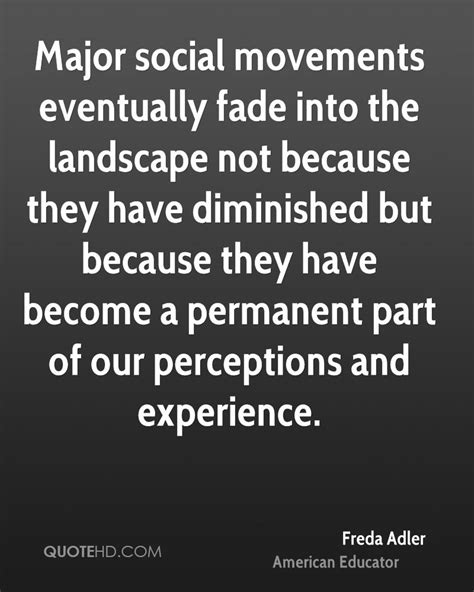A Quote by Hans Monderman
I don’t want traffic behavior, I want social behavior.
Quote Topics
Related Quotes
I want to get violence - I want schools to start from K through 12 to just every day have teachers understand that they don't want to talk about anything that is violent, and they want to explain to the children how bad violence is and how behavior - violent behavior, is something that they really should not practice and think about.
True doctrine, understood, changes attitudes and behavior. The study of the doctrines of the gospel will improve behavior quicker than a study of behavior will improve behavior. Preoccupation with unworthy behavior can lead to unworthy behavior. That is why we stress so forcefully the study of the doctrines of the gospel.
And last, we must bear in mind that the relationships between perception, thought, emotion, and behavior are neither automatic nor consistent. In many cases they are demonstrably affected or directed by culture and socialization. We don't just want what we want because we want it; we want what we want because that's what we've learned to want.
When you look at any experimental work not directly related to economics, but trying to test rational behavior in other ways, experiments have conspicuously failed to show rational behavior. Macro evidence certainly suggests deviations from rationality, but I don't want to say the rationality hypothesis is completely wrong. If you have any introspective idea or experimental idea about people's behavior, it seems to be incompatible with the really full scale rational expectations.
Etiquette is about all of human social behavior. Behavior is regulated by law when etiquette breaks down or when the stakes are high - violations of life, limb, property and so on. Barring that, etiquette is a little social contract we make that we will restrain some of our more provocative impulses in return for living more or less harmoniously in a community.
What I mean by it, and roughly what most biologists who talk about culture mean by it, is either behavior itself, or information that leads to behavior. Information that is picked up through social learning - so, from being with, watching, being taught by others. It's a way that individuals behave or get information about how they will behave that comes directly from the behavior of others.
































